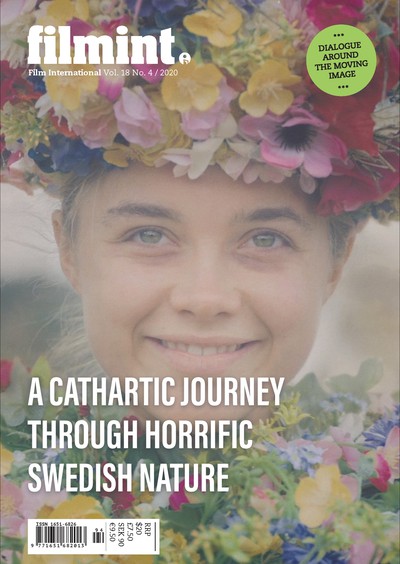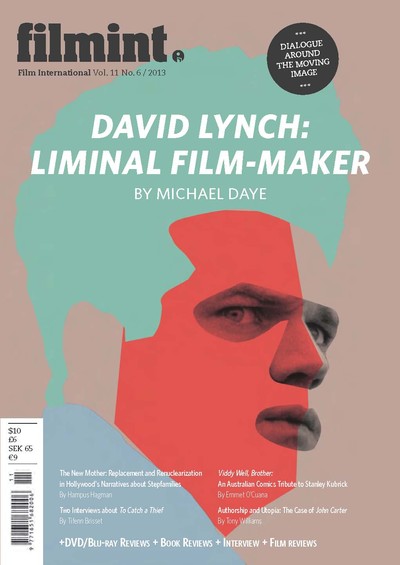Film International i — November 2013, #66

Film International
Film International covers film culture as part of the broader culture, history and economy of society. We address topics of contemporary relevance from historically informed perspectives. We wish to bridge the gap between the academy and the outside world, and encourage the participation of scholars from a variety of disciplines, as well as journalists, freelance writers, activists and film-makers.
- 232 (30)
- United Kingdom
- Four issues a year
- Art, Culture, Design, Fashion, Film & Television
- First issue 1973
- ISSN 1651-6826
“David Lynch: Liminal Film-Maker”
GBP 6.00
In Hollywood ‘[a] nuclear family is every child’s right’ argues Hampus Hagman, who takes a broad look at the Dream Factory’s problematic relationship to stepfamilies and other non-traditional family structures. Is ‘[David] Lynch’s “strangeness” […] part of a conscious strategy, allowing him to work in relative creative freedom provided he maintain his cryptic persona’? This is what Michael Daye suggests in his article on Lynch as a ‘liminal film-maker’. Tifenn Brisset has met actress Brigitte Auber and script supervisor Sylvette Baudrot, who share with us their memories of working on Alfred Hitchcock’s To Catch a Thief (1955). Tony Williams delves into the ‘progressive utopian dimensions’ of the universe of Tarzancreator Edgar Rice Burroughs and the unfairly dismissed 2012 Burroughs-adaptation John Carter. And Emmet O’Cuana has met Australian film-maker-turned-graphic novelist Frank Candiloro, whose recent work Viddy Well, Brother is a tribute to Stanley Kubrick and A Clockwork Orange.
To buy this issue please visit: www.intellectbooks.co.uk or www.isubscribe.co.uk
What do you think of this issue?
Sign up or Log in to join the discussion.
Recent activity
- 16 Jul, 2014 Wanted by somou
- 20 May, 2014 Added to pile by JayKay99
- 07 May, 2014 Wanted by ebz
- 19 Mar, 2014 New cover uploaded by SteveHarries
- 19 Mar, 2014 Added to Magpile by SteveHarries

